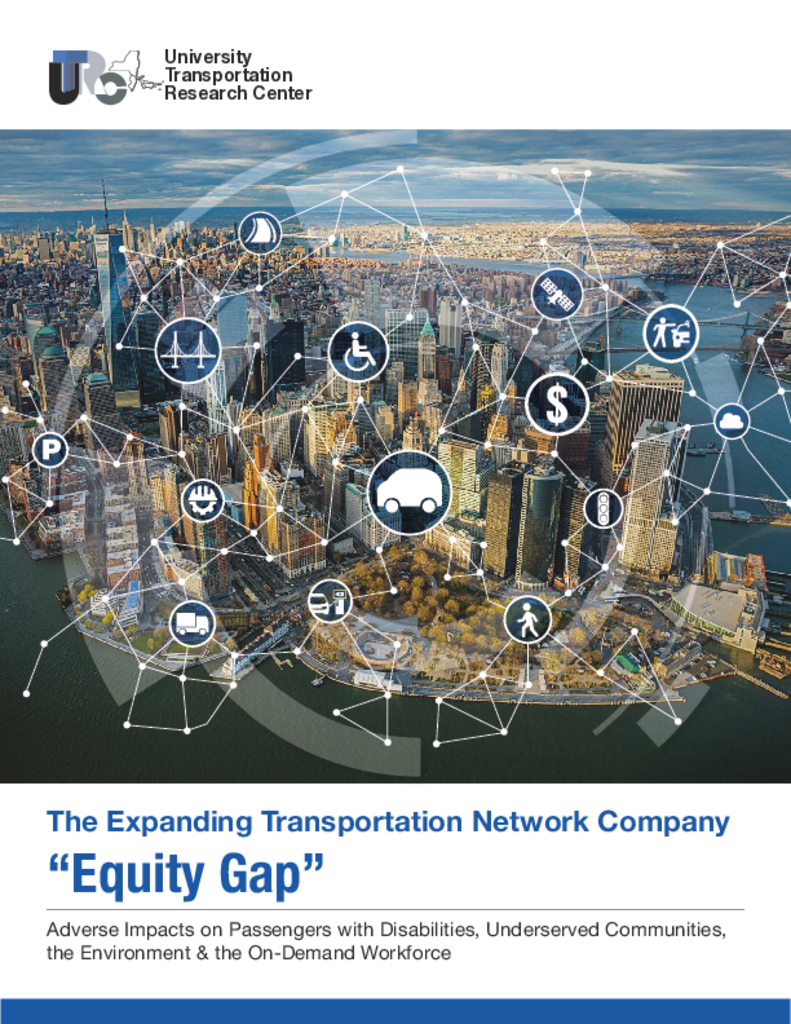This report provides an analysis and evaluation of the negative impacts that the proliferation of Transportation Network Companies (“TNCs”) have had on people with disabilities, underserved communities, the environment, social responsibility, and the sharing economy. Methods of analysis include: a look at the past and current climate of legislation and litigation, as well as the inherent shortcomings in the TNC business model, that have otherwise halted progress in achieving accessibility in public transportation for people with disabilities; a statistical examination exposing the practice of TNC drivers ignoring low-income, minority, rural, the unbanked and technologically deprived communities; the effects that vehicle proliferation and surge pricing have had on carbon emissions and congestion; the cost to taxpayers and governments resulting from TNC financial practices; and an overview of how the concept of the “sharing economy” does not, in fact, apply to TNCs despite their claims to the contrary. This report is a colloquy on the adverse impact of TNCs have had on transportation “equity,” and will demonstrate that the TNC template is nothing more than a privileged access model that operates to the detriment of those in most need of their services.




